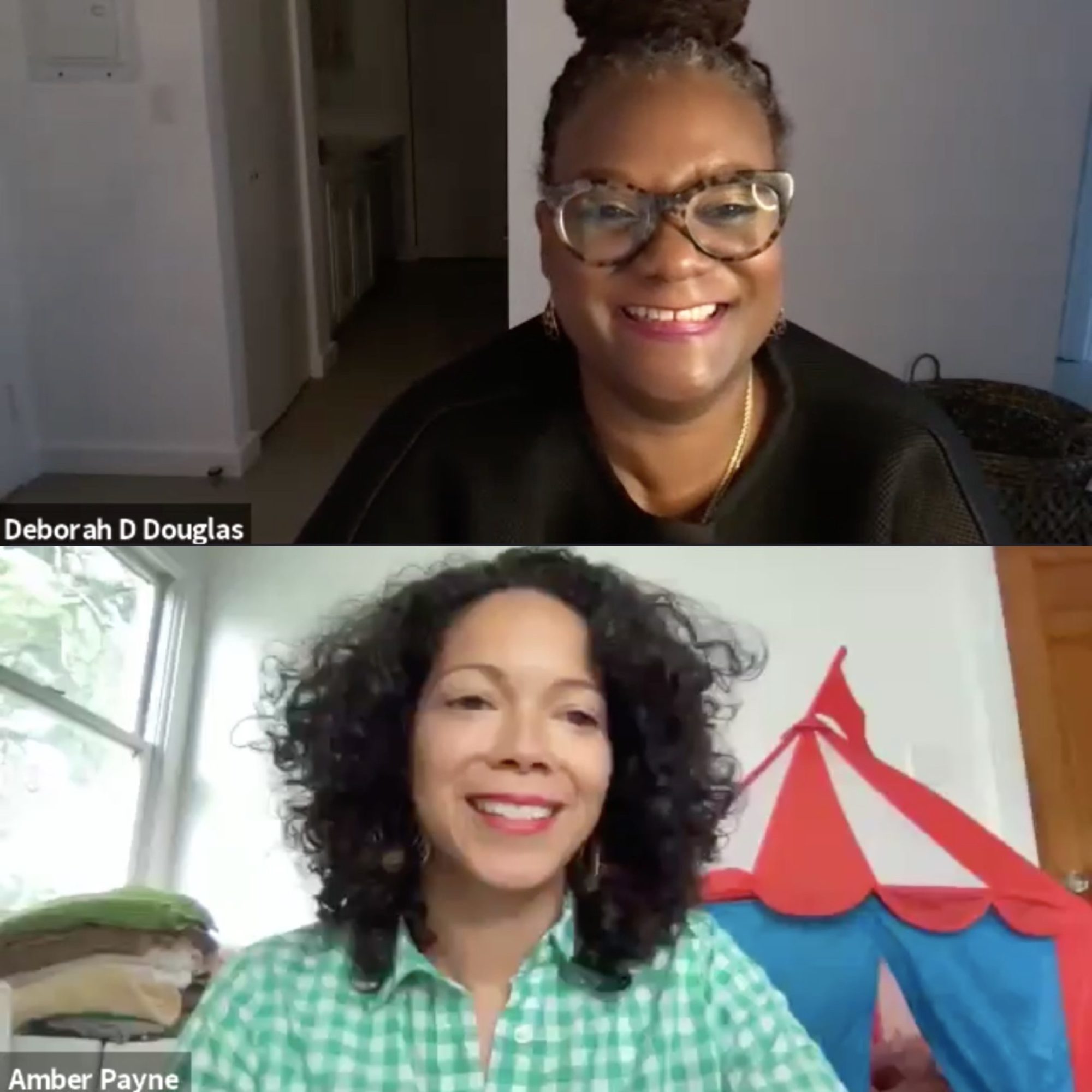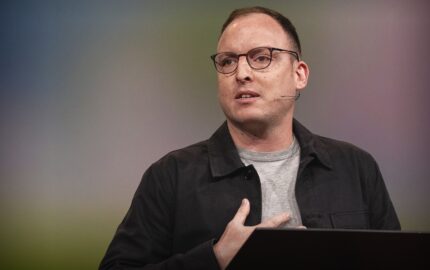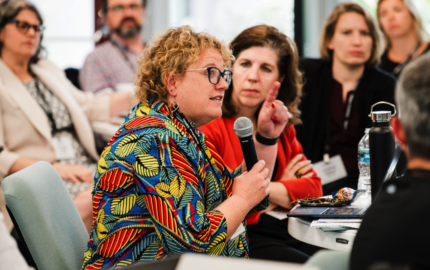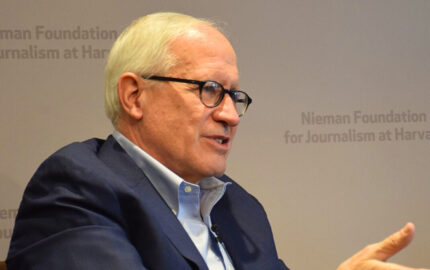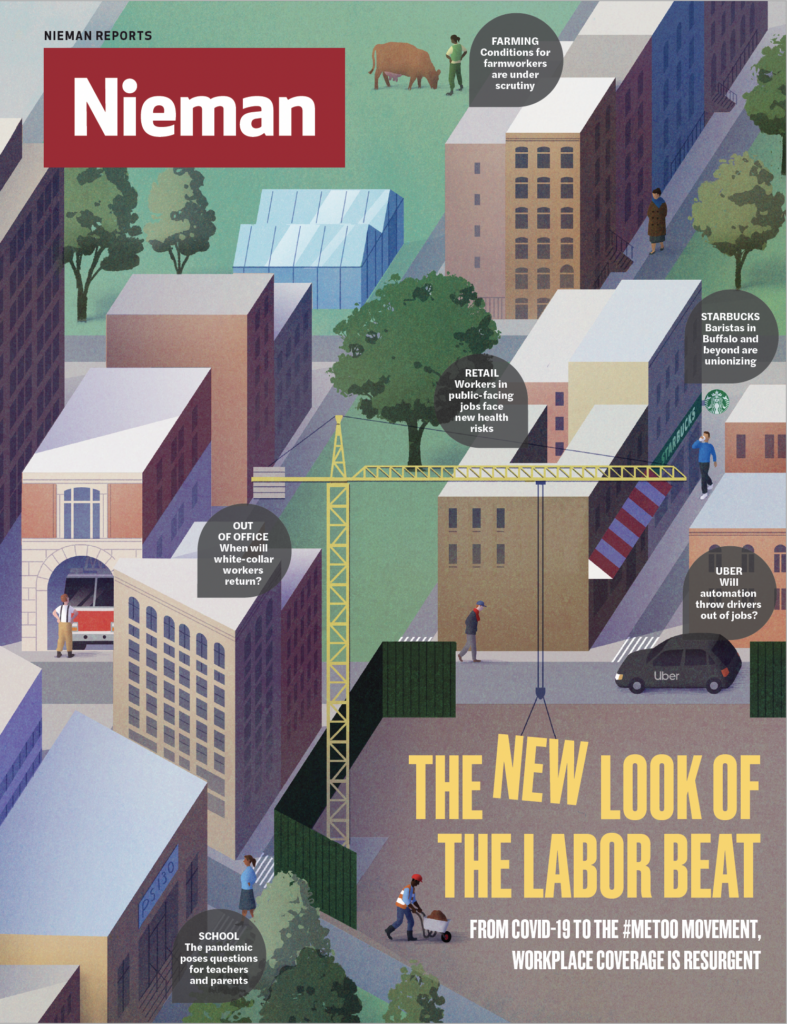
Once considered a marquee assignment, the labor beat spent years on the decline. Over the past decade, however, the beat has bounced back to cover everything from how Uber treats its workers to the #MeToo movement to the lack of affordable child care.
Fueled by the Great Recession, the rise of digital media, and the pandemic, today’s labor beat tackles a different set of questions from its union-centric predecessor: Will many white-collar workers never return to the office? Will pandemic-battered workers press for workplace safety? And will the Great Resignation cause American corporations to treat their workers far better?
In March, The Boston Globe’s opinion team and Boston University’s Center for Antiracist Research announced plans to revive The Emancipator, the first abolitionist newspaper in the United States, initially founded in the 19th century. The resurrected Emancipator aims to “amplify critical voices, ideas, and evidence-based opinion in an effort to reframe the national conversation and hasten racial justice.” Its advisory board boasts some of the nation’s most prominent scholars, journalists, and thinkers on racial justice, including The 1619 Project founder Nikole Hannah-Jones, New Yorker writer Jelani Cobb, historian Annette Gordon-Reed, and Princeton’s chair of African American studies Eddie Glaude.
In June, The Emancipator announced that it had tapped Deborah D. Douglas and Amber Payne as its co-editors-in-chief. Prior to The Emancipator, Douglas served as the Eugene S. Pulliam Distinguished Visiting Professor of Journalism at DePauw University. She was also a senior leader at The OpEd Project, amplifying underrepresented expert voices, and managing editor of MLK50: Justice Through Journalism. Payne, a 2021 Nieman Fellow, was previously managing editor of BET.com and an executive producer at Teen Vogue and them., which centers LGBTQ+ voices. In 2015, Payne founded NBCBLK, a section of NBCNews.com focused on Black identity.
Douglas and Payne spoke to Nieman Fellows in September about their visions for The Emancipator ahead of its anticipated launch. Edited excerpts:
On (re)imagining the historical press for our contemporary moment
Deborah D. Douglas: In a way, we are reimagining something and not creating something from scratch. The underlying ethos of the original Emancipator is something that we’re pulling through this new platform that we’re creating.
The energy that we’re bringing to the content that we’re creating is the same energy that the original Emancipator brought to it, which was a pursuit of democracy, a pursuit of full inclusion into this American project.
We’re using this as a way to surface the best ideas and the best voices to pick up that work. We’ve all experienced in the past few years a sense of some systemic failures. I read a Facebook post the other day [that said] “Are we on our way to being a failed state, or are we a failed state?” That might be catastrophic for some people.
For other people, the experience of living in the United States today brings up these questions about how can we fully be implicated in the promise of democracy and reconfigure systems in a way that works for all of us? In that way, I feel like we are the same as the original Emancipator. They were all about plugging the Black community into what it meant to be a full and complete citizen.
On working in and beyond Boston and its legacy institutions
Douglas: This will be a national platform that we think will have a global reach because of the quality of the issues that we’ll be excavating. We’re positioned in Boston for a reason. We are in Boston and we’re for Boston, but not solely for Boston. Boston is so foundational to the founding of this country. It is foundational to the abolitionist movement. It’s the center of America’s abolitionist movement. It’s important for that.
Amber Payne: This is where the bricks of democracy were first laid, and there’s also a very problematic history; some is known, and some is an untold history.
We’re looking at, how do we make history? How do we bring history into the present? How do we make history relevant? What kind of through‑lines are there that we can draw?
It’s also not lost on us that we’re working from these two elite institutions [Boston University and The Boston Globe] that also have problematic histories. If we’re going to be authentic, and curate this audience, and build trust, and have that transparency, there’s also things in The Globe’s history and BU’s history that would be relevant to us. Those are points of entry.
We’d be looking at what is it about Boston or a moment in Boston history that is also horrific but that we can also learn from and find the throughline for? What does that tell us about society now? Part of it is history and context. Part of it is untold, unsung voices.
There are voices in that abolitionist movement besides the William Lloyd Garrisons and the Frederick Douglasses. There’s Mariah Stewart and David Walker. These are Black Boston abolitionists who were very outspoken.
There’s a tendency to think about the struggle. We’re also trying to think about the uplift and Black life, and arts, and culture. We’re trying to explore now, how do we also tell those stories in a way that will engage and grow audience? How do we do all that while showing that we’re a national and maybe even a global publication?
On co-editing and deconstructing the traditional newsroom power hierarchy
Douglas: This question kept coming up: “That’s odd. How is that going to work?” One person thought that — expressed that — this flew in the face of everything that they believe about how newsroom leadership should work.
When I heard that comment, we decided to address it in our mission. If it comes up this much, and it came up in such a visceral way from that individual, then perhaps we need to be able to speak to that going forward.
We’d like to think that we’re going to do things better, that we’ll be able to be a model for inclusive journalism.
Our leadership model is a way for us to share our intellect and creativity and talent in a way that shares responsibility for the communities that we serve and ensures power is the antidote to white supremacy, which is preoccupied with hoarding power and hierarchy.
Payne: We’re doing everything together. We’re in the process of creating this mind‑meld, so we can react and operate as a single unit.
What that looks like is just being really open and transparent with each other. We debrief after every call. We talk about, “What came up for you, and what were the high points for you, and what are the action steps for you?”
Sometimes, that sparks stories that we tell each other from our backgrounds, there are things that we want to carry forward in our journalistic practice, and there are some practices that we would like to bury.
When certain things surface, we can share our experiences and say, “Well, this is what I was thinking about, how we can do this differently or do this better,” or, “This is what I learned from a mentor,” or, “This is what I think the public conversation can offer.”
We’ve even talked about parts of our childhood belief systems that we no longer adhere to where we’ve developed a new set of values or that we’re continuing to reconcile, as we move through our engagement with the issues, that we talked about how that could inform the way we present projects and story ideas.
On cultivating a culture of joy
Douglas: Our mission says that joy underlies our ethos. If that exists on our platform, it needs to exist in our newsroom.
I can say, based on the job descriptions that we’ve practiced so far, is that we’ve issued an invitation to potential team members to be a part of creating that joy. We are a joyful, can-do, entrepreneurial environment, and we are creating something from scratch together.
We’re not creating it and then spooning it up to other people. This belongs to all of us. We use language like ‘leading’ and ‘ownership’ and being responsible for sharing their expertise with the team, because we all bring some sort of expertise to this job, to this role.
We want to just give space for people to fully be who they are in the newsroom environment. We want to have a positive work experience, and we want to extend that to other people.
There are newsrooms where leadership doesn’t necessarily even think about that or believe in that, but I think that by virtue of just expressing that we want an open, transparent, inclusive, joyful environment that is creative, and is about solutions, that that is just the beginning of creating something special.
Payne: I think there are just certain things about coming up in the newsroom and getting yelled at, and thinking that that’s just how it had to be because I was just a lowly researcher. Yes, it built a thick skin, but it’s not a practice that I will ever employ in a newsroom that I’m running.
We both are on the same page with creating this environment. We’re in a shared leadership position. It’s a collaborative team model.
That’s the culture that we’re going to try to build upfront, and we’re just very self-aware that it starts with us, it starts with the way people see us interacting and working together.
On moving beyond the “Black newspaper” label and toward intersectionality
Douglas: We’re not viewing this as a Black publication. We’re looking at this as a mass or universal publication that just happens to use the Black experience as a doorway to a larger conversation.
Just like other communities have frequently been the default for where the conversation starts, because we’re grounded in this particular abolitionist history, that abolitionist history is the default, and then we go from there.
Payne: It’s two Black women who are the co‑editors-in-chief and we’re talking about emancipation, but we want these themes to be larger.
We know that our staff will be diverse and multiracial. We hope that may be one thing that is a clear indicator, and we hope that the content will also make that clear.
There are intersections from Native communities to Asian American communities. It’s not that we are going to try to be all things to all communities, but that there are these intersections with the Black experience really operating to and from.
Douglas: I even created a word for what happens specifically to Black women in spaces. I call it “depresencing.” I wrote about it in the chapter of “Four Hundred Souls.” It’s just a given now. Sometimes, I forget to be offended by things because it’s just so…
I’m just so used to it. It’s like you just get up. You start your day, and you just press forward with the best attitude and willingness to put all the intellect and muscle that you can into it and surround yourself by other people you know in the community and other people in the industry.
And for me, also other women across races. I’m also a senior leader at the OpEd Project, so the woman thing is important to me. I hear from so many people from marginalized backgrounds in this profession. To me, the only way I personally am making it through is just to be in relationship and share stories and share solutions and to build each other up in real time. Not just sometimes, not just when you come together at the annual conference, but in real time just build each other up.
